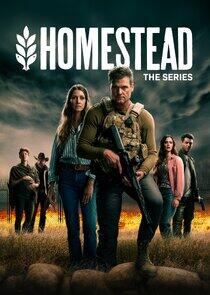American Experience - Season 15

Season 15

Episodes
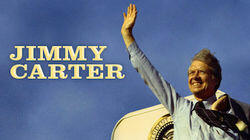
Jimmy Carter: Jimmy Who?
Jimmy Carter's story is one of the greatest dramas in American politics. In 1980, he was overwhelmingly voted out of office in a humiliating defeat. Over the subsequent two decades, he became one of the most admired statesmen and humanitarians in America and the world. Through interviews with the people who know him best, Jimmy Carter traces his rapid ascent in politics, dramatic fall from grace, and unexpected resurrection, including Carter family home movies and a rare film sequence of Carter's final hours in the Oval Office, when he and his advisors waited in vain for the release of the Americans who had been held hostage in Tehran for 444 days.
Carter was the first president to confront the challenge of militant Islam, then embodied by the Ayatollah Khomeini, leader of the Iranian revolution. Carter was also the first president to embark on what would prove to be the excruciating road to peace in the Middle East. But in the end, his presidency was undone by his failure to secure the hostages' release and by a plummeting economy. Yet the memories of his presidency — gas lines, inflation, recession, the Iran hostage crisis, an ineffectual and fractured administration, and the so-called national malaise — would be eclipsed, finally, by his post-presidential successes as a peacemaker in the world's most troubled areas, and his emergence as a champion for the poor in his own country.
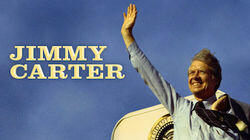
Jimmy Carter: Hostage
Jimmy Carter's story is one of the greatest dramas in American politics. In 1980, he was overwhelmingly voted out of office in a humiliating defeat. Over the subsequent two decades, he became one of the most admired statesmen and humanitarians in America and the world. Through interviews with the people who know him best, Jimmy Carter traces his rapid ascent in politics, dramatic fall from grace, and unexpected resurrection, including Carter family home movies and a rare film sequence of Carter's final hours in the Oval Office, when he and his advisors waited in vain for the release of the Americans who had been held hostage in Tehran for 444 days.
Carter was the first president to confront the challenge of militant Islam, then embodied by the Ayatollah Khomeini, leader of the Iranian revolution. Carter was also the first president to embark on what would prove to be the excruciating road to peace in the Middle East. But in the end, his presidency was undone by his failure to secure the hostages' release and by a plummeting economy. Yet the memories of his presidency — gas lines, inflation, recession, the Iran hostage crisis, an ineffectual and fractured administration, and the so-called national malaise — would be eclipsed, finally, by his post-presidential successes as a peacemaker in the world's most troubled areas, and his emergence as a champion for the poor in his own country.
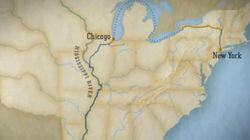
Chicago: City of the Century: Mudhole to Metropolis
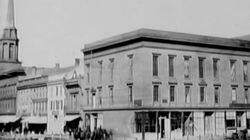
Chicago: City of the Century: The Revolution Has Begun

Chicago: City of the Century: Battle for Chicago
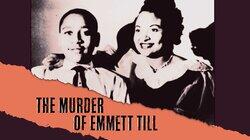
The Murder of Emmett Till
In August 1955, a 14-year-old black boy whistled at a white woman in a grocery store in Money, Mississippi. Emmett Till, a teen from Chicago, didn't understand that he had broken the unwritten laws of the Jim Crow South until three days later, when two white men dragged him from his bed in the dead of night, beat him brutally, and then shot him in the head. Although his killers were arrested and charged with murder, they were both acquitted quickly by an all-white, all-male jury. Shortly afterward, the defendants sold their story, including a detailed account of how they murdered Till, to a journalist. The murder and the trial horrified the nation and the world. Till's death was a spark that helped mobilize the Civil Rights movement. Three months after his body was pulled from the Tallahatchie River, the Montgomery bus boycott began.
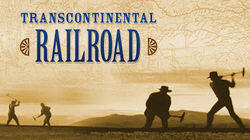
The Transcontinental Railroad
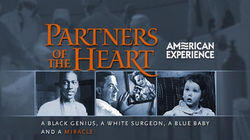
Partners of the Heart

The Pill
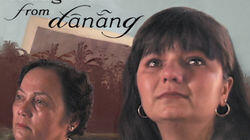
Daughter from Danang

Seabiscuit
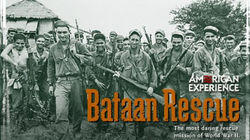
Bataan Rescue

Murder at Harvard
Recently Updated Shows

The Creep Tapes
Based on a collection of videotapes in the secret vault of the world's deadliest and most socially uncomfortable serial killer, who hires his victims to film him for the day under false pretenses, each episode exposes a new victim from one of the fabled 'Creep Tapes'.

America's Funniest Home Videos
ABC's longest-running primetime entertainment show, America's Funniest Home Videos, returns for season 36 this fall with the same mission -- giving families something genuinely funny to enjoy together on Sunday nights.
"AFV," the longest-running primetime entertainment show in ABC history, returns for season 36 with the same mission - to provide viewers with hysterical moments that fly by at a dizzying pace.

The Real Housewives of Potomac
Just up the river from our nation's capital lies a hidden gem—Potomac, Maryland. Its rolling hills, gated mansions, sophisticated prep schools, and exclusive country clubs all serve to keep the area invitation-only. Sprinkled throughout this community are a handful of old-line, wealthy African-American families who have historically broken racial barriers to provide a life of privilege for their children. The Real Housewives of Potomac follows the upscale lives of six intriguing, well-to-do women: Gizelle Bryant, Katie Rost, Karen Huger, Charrisse Jackson-Jordan, Robyn Dixon, and Ashley Darby, all of whom have fought for their places in this society by way of legacy or marriage. In a town where entry is granted only through class, pedigree, and lineage, how far will these ladies go to secure their spot at the top of this prestigious circle?

The Traitors Canada
Follow a group of contestants – including some familiar faces – who live together as they complete a series of challenges with the goal of earning a cash prize. The catch? Some of the contestants are traitors who will attempt to deceive and manipulate their way to the prize instead of sharing it amongst the group. In this psychological adventure will the traitors be unmasked in time?
